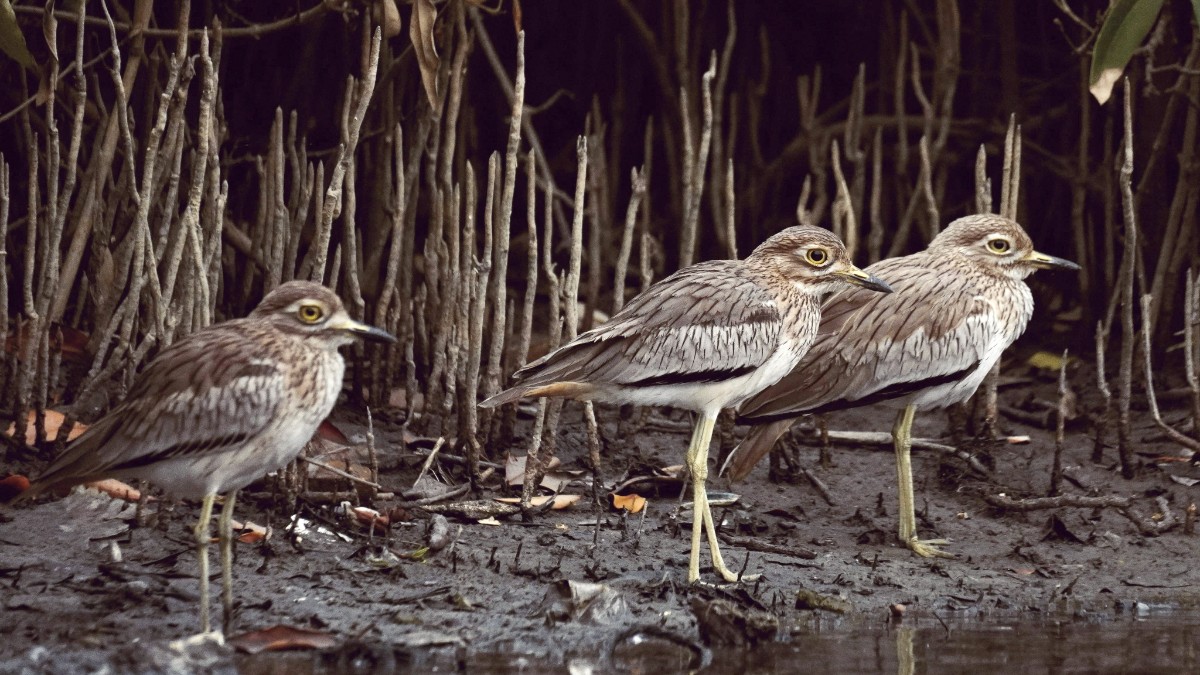
The Gambia
Imagine golden sands stretching along the Atlantic, framed by swaying palm trees, where fishing boats return with their daily catch. Picture bustling markets filled with the aroma of spices and the sound of lively bartering. Consider a journey upriver, revealing ancient traditions, abundant birdlife, and the quiet rhythm of rural communities. This guide navigates Banjul and beyond, ensuring you discover the magic that makes The Gambia unforgettable.
The Gambia is Africa's smallest mainland country, a slender strip of land that follows the course of the Gambia River for nearly 300 miles (480 kilometers) from the Atlantic Ocean eastward, surrounded on three sides by Senegal. This unique geographical shape means the river is not just a landmark but the nation's lifeline, influencing its ecosystems, transport, and traditional way of life. Banjul, the capital, sits on Saint Mary's Island at the river's mouth, where the Gambia River meets the vast expanse of the Atlantic. This strategic location shaped its history as a trading post and a gateway to the interior.
The landscape shifts as you move from the coast inland. The coastal region features flat plains, mangrove swamps, and sandy beaches popular for tourism. Further upriver, the terrain becomes more savannah-like, with scattered trees and open grasslands. The river itself is navigable for much of its length; access to remote villages and diverse wildlife habitats, including various bird species, hippos, and crocodiles is present. Mangrove forests line the riverbanks near the coast, supporting important ecosystems and creating opportunities for boat tours. The country's compact size simplifies travel between different regions; visitors experience diverse environments within a relatively short journey.
The Gambia's history intertwines deeply with the Gambia River, serving as an important trade route for centuries. European powers, including the Portuguese, British, and French, established trading posts along the river, mainly dealing in gold, ivory, and unfortunately, slaves. Kunta Kinteh Island, formerly known as James Island, located in the river, became a harrowing symbol of the transatlantic slave trade and is an UNESCO World Heritage site, a sobering reminder of this painful past. This island, along with other sites like Albreda and Juffureh, a poignant historical journey for visitors.
The nation gained independence from British colonial rule in 1965, becoming a republic within the Commonwealth. Its political landscape saw periods of stability and change; a peaceful transfer of power in recent years marks a new chapter for the country. Banjul, originally named Bathurst by the British, served as a colonial administrative center before becoming the independent nation's capital. Its architecture and street names still reflect elements of this colonial heritage. The layers of history, from ancient African kingdoms to colonial influences and the struggle for self-determination, a profound context to every step taken on Gambian soil.
UNESCO World Heritage slave trade site.
Historic trading post near Kunta Kinteh Island.
Village linked to "Roots" novel.
Iconic monument in Banjul.
Ancient megalithic site.
The Gambia presents a travel experience, appealing to various interests. For those seeking relaxation, the coastal areas around Kololi, Bakau, and Cape Point feature golden beaches, comfortable resorts, and a range of dining options. The "Smiling Coast" lives up to its name with locals known for their friendliness and welcoming demeanor; an atmosphere of genuine hospitality pervades.
Nature enthusiasts discover a haven in The Gambia's rich biodiversity, specifically its birdlife. Over 560 bird species make it a premier birdwatching destination. Reserves like Abuko Nature Reserve and Bijilo Forest Park allow observation of monkeys, crocodiles, and a host of avian wonders. The Gambia River presents an unique perspective for wildlife viewing; boat trips reveal hidden creeks and mangrove ecosystems.
The coastal areas around Kololi, Bakau, and Cape Point feature golden beaches, comfortable resorts, and a range of dining options.
Over 560 bird species make it a premier birdwatching destination. Abuko Nature Reserve and Bijilo Forest Park allow observations of monkeys, crocodiles, and birds. River trips reveal hidden creeks and mangrove ecosystems.
Whether searching for beach tranquility, wildlife encounters, historical reflection, or cultural engagement, The Gambia delivers an experience both accessible and deeply rewarding.
The Gambia presents a travel experience, appealing to various interests. For those seeking relaxation, the coastal areas around Kololi, Bakau, and Cape Point feature golden beaches, comfortable resorts, and a range of dining options. The "Smiling Coast" lives up to its name with locals known for their friendliness and welcoming demeanor; an atmosphere of genuine hospitality pervades.
Nature enthusiasts discover a haven in The Gambia's rich biodiversity, specifically its birdlife. Over 560 bird species make it a premier birdwatching destination. Reserves like Abuko Nature Reserve and Bijilo Forest Park allow observation of monkeys, crocodiles, and a host of avian wonders. The Gambia River presents an unique perspective for wildlife viewing; boat trips reveal hidden creeks and mangrove ecosystems.
Golden beaches, comfortable resorts, and dining options await.
Birdwatching, monkeys, crocodiles, and river safaris.
The 'Smiling Coast' lives up to its name; locals are welcoming.
The Gambia presents a straightforward travel experience once familiarity with its characteristics develops. Here are some essential facts.
The people of The Gambia are renowned for their friendliness. A simple 'hello' or 'how are you' initiates genuine interactions.
Embrace the slower pace of life and enjoy connecting with locals.